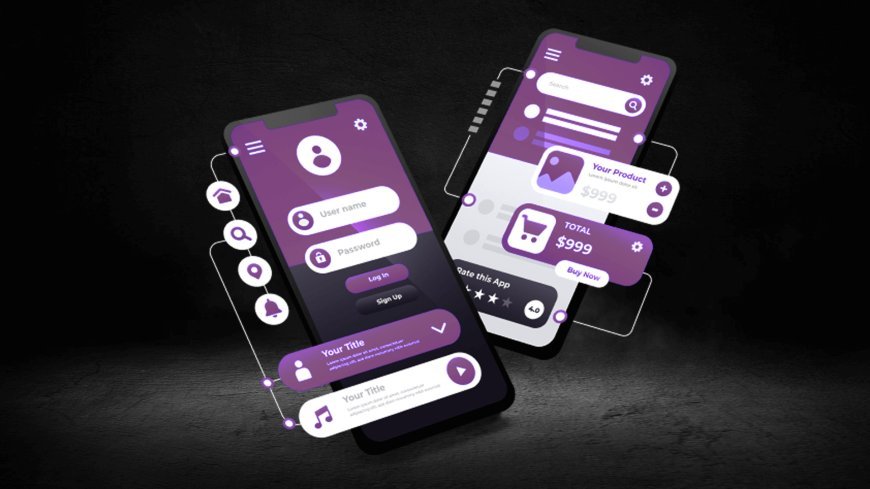Lessons Learned from the Most Successful Mobile Apps in the World

The mobile app industry is booming, with millions of apps available across various platforms. Some apps stand out as unparalleled successes, transforming industries and revolutionizing how we live, work, and interact. The most successful mobile apps have learned important lessons throughout their development, design, and growth. These lessons can serve as a blueprint for future developers and businesses looking to create impactful, sustainable, and widely-used mobile apps.
1. User-Centric Design is Key
The most successful apps place user experience (UX) at the center of their design. Whether it’s a simple game or a complex service platform, the ease with which users can interact with an app significantly impacts its success. Apps like Instagram, WhatsApp, and Uber have invested heavily in creating interfaces that are intuitive and straightforward.
Lesson Learned: Prioritize user needs and ensure your app is easy to use. Streamline navigation, minimize friction points, and focus on creating a seamless experience from start to finish.
2. Continuous Improvement and Updates
The tech world moves quickly, and so do user expectations. Leading apps never rest on their laurels; they continuously update their features, fix bugs, and improve performance. For example, platforms like TikTok and Spotify regularly roll out new features to keep users engaged and attract new ones.
Lesson Learned: Regular updates are essential for maintaining user interest and improving your app’s functionality. Continuously gather feedback, track app performance, and stay responsive to changing user needs.
3. Building a Strong Brand Identity
Successful apps have a unique and recognizable brand identity. They understand the importance of creating an emotional connection with users. Take Apple’s App Store, for instance, which has established a sense of trust and quality, or how brands like Snapchat and Tinder have cultivated their own distinct cultures and visual styles.
Lesson Learned: Establish a strong brand identity that resonates with your target audience. This goes beyond a logo or color scheme—it’s about creating a narrative that your users connect with.
4. Scalability and Performance Optimization
Apps that grow quickly need to be able to handle a massive number of users without crashing or slowing down. One of the key elements in the success of apps like Facebook, YouTube, and TikTok is their scalability. These apps have back-end infrastructure designed to handle millions of users and gigabytes of data without compromising performance.
Lesson Learned: Build an app that can scale with growth. Plan for high traffic and ensure your app can handle an increasing number of users without performance degradation. This includes optimizing your back-end architecture and embracing cloud solutions.
5. Effective Monetization Strategy
Monetizing an app can be tricky, but successful apps have found ways to generate revenue without sacrificing user experience. Take Netflix, for instance—its subscription model provides steady revenue, while apps like Candy Crush have mastered in-app purchases and ads to generate income. Meanwhile, some apps, like Instagram, have integrated ads seamlessly into the user experience.
Lesson Learned: Implement a monetization strategy that aligns with your app’s purpose and user experience. Whether through subscriptions, in-app purchases, or ads, choose a model that will scale alongside user engagement.
6. Incorporating Social and Community Features
Many of the world’s top mobile apps have social elements built into them, fostering a sense of community among users. Facebook, Twitter, and Discord have leveraged the power of social interaction, allowing users to connect, share content, and collaborate. These apps understand that users not only engage with the app itself but also with other people.
Lesson Learned: Incorporate social and community features that encourage user interaction. These features can increase retention and create a sense of loyalty among users.
7. Data-Driven Decisions
Successful apps use data to inform decisions at every stage of development. By analyzing user behavior, app developers can make data-driven improvements, personalize experiences, and optimize for retention. Apps like Amazon and YouTube use advanced algorithms and data analytics to predict what users want next and tailor their content.
Lesson Learned: Use data to understand user behavior, identify trends, and personalize the user experience. Leveraging analytics tools will help you fine-tune your app to meet user expectations.
8. Security and Privacy Matter
With increasing concerns around data privacy, successful apps prioritize user security and transparency. Companies like WhatsApp and Signal have made security a central feature, ensuring that user data is protected and private.
Lesson Learned: Security and privacy should never be overlooked. Users are more likely to trust and engage with an app that safeguards their data and respects their privacy.
Call to Action: Build Your Dream App with Trispace Developer
If you’re looking to create an app that embodies the lessons learned from the most successful mobile apps in the world, Trispace Developer is here to help. Our team of expert developers can guide you through every step of the development process—from user-centric design and scalability to seamless integration of social features and robust security.
Partner with Trispace Developer to bring your mobile app vision to life and create an experience that resonates with users worldwide. Let’s build something extraordinary together!
What's Your Reaction?































































